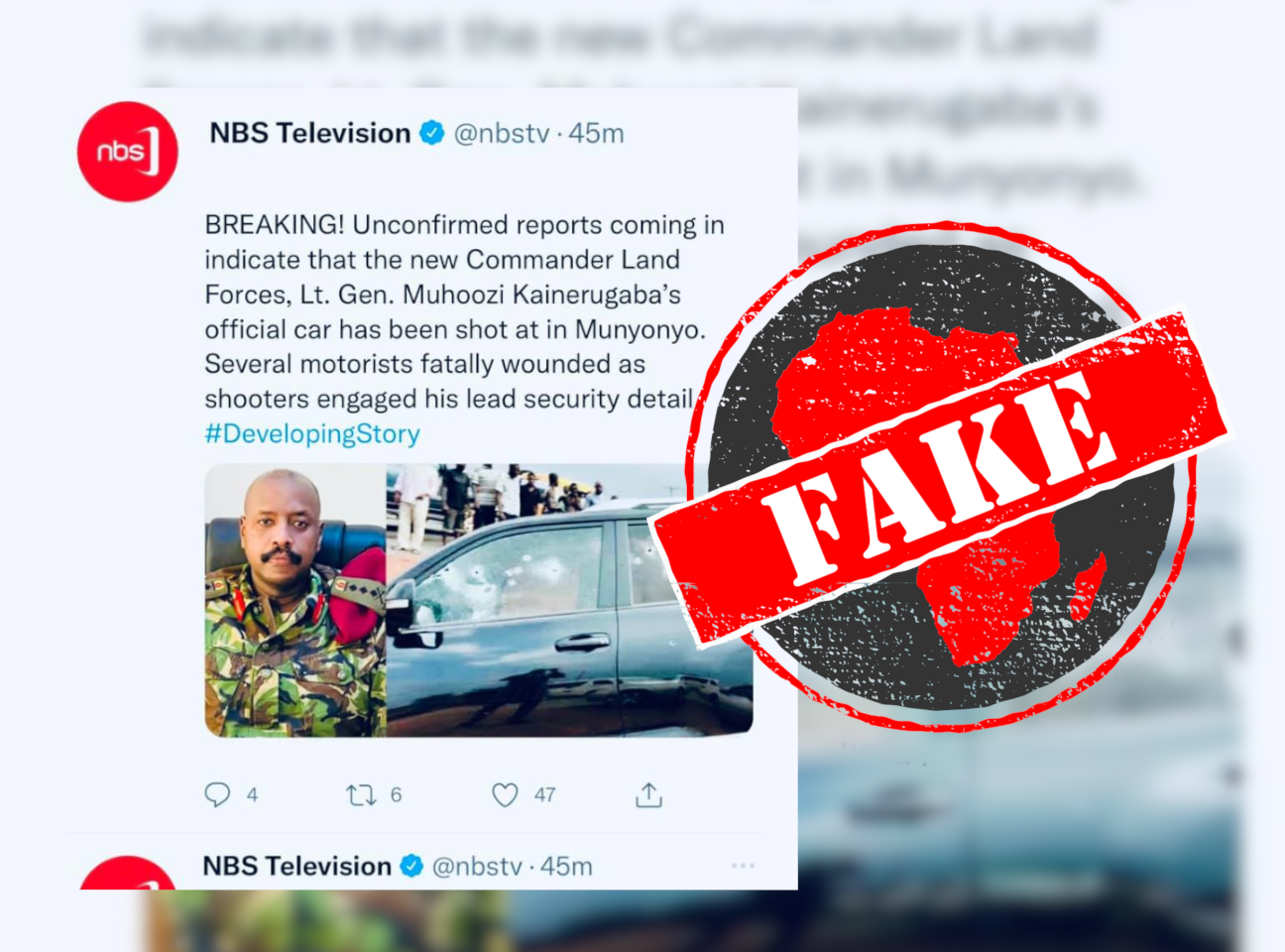A screenshot of what seems to be a tweet by Ugandan broadcaster NBS Television, reporting an attack on a top military officer in Uganda, was posted on Facebook on 22 August 2021.
The tweet reads: “Unconfirmed reports coming in indicate that the new Commander Land Forces, Lt. Gen. Muhoozi Kainerugaba’s official car has been shot at in Munyonyo. Several motorists fatally wounded as shooters engaged his lead security detail.”
The screenshot, which was shared in a public group with over 270,000 members, includes a photo of a car with bullet holes and a mugshot of Kainerugaba.
Kainerugaba is the son of Uganda president Yoweri Museveni and also the commander of the special forces command in the country’s military.
But did NBS, a mainstream TV station, really send this tweet? We checked.

No tweet on official channels
The screenshot doesn’t show any publication date or time, unlike the usual Twitter format.
We also could not find the tweet searching through NBS’s official Twitter page.
Such an attack would have been big news, widely reported in the mainstream media. But there’s been no coverage of it.
Photo unrelated
A Google reverse image search of the photo showing a car with bullet holes reveals that it first appeared online in July 2021.
But it was taken in Nigeria, not in Uganda, and shows the car of a local scientist, killed on the highway between Enugu and Port Harcourt in southwestern Nigeria.
‘Disregard this screenshot’
The screenshot was posted on NBS Television’s official Facebook page on 22 August, stamped “FAKE” in red.
“NOTICE: Please disregard this screenshot about Lt. Gen. Muhoozi Kainerugaba making rounds on social media,” the Facebook post reads. “It wasn't posted on any of our social media platforms.”
Republish our content for free
For publishers: what to do if your post is rated false
A fact-checker has rated your Facebook or Instagram post as “false”, “altered”, “partly false” or “missing context”. This could have serious consequences. What do you do?
Click on our guide for the steps you should follow.
Publishers guideAfrica Check teams up with Facebook
Africa Check is a partner in Meta's third-party fact-checking programme to help stop the spread of false information on social media.
The content we rate as “false” will be downgraded on Facebook and Instagram. This means fewer people will see it.
You can also help identify false information on Facebook. This guide explains how.


Add new comment